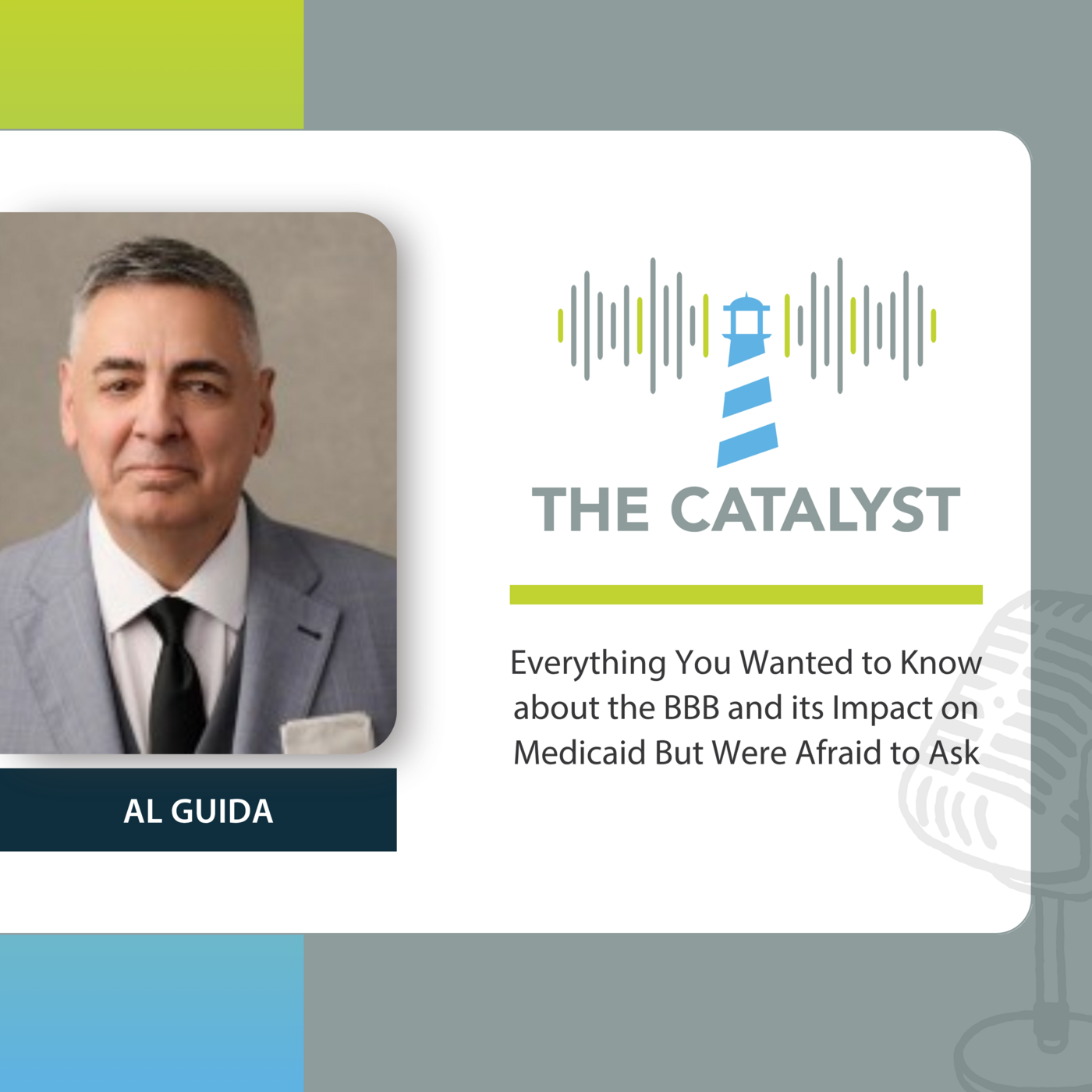One-Stopping for Recovery: Great Concept, But Does it Work?
Shining a light on integrated care to promote mastery and unlock human potential.
On a chilly morning in Connecticut, a man who once cycled through jails and emergency rooms now sits at a community table, sipping coffee and filling out a job application with the help of a peer mentor. In Philadelphia, a mother in early recovery finds a safe space for her children to play while she connects with others who understand her journey. These are not isolated stories—they are daily realities inside America’s Recovery Community Centers (RCCs), grassroots “recovery hubs” that have become lifelines for those battling substance use disorders.
A new systematic review, “One-stop shopping for recovery? A systematic review of the evidence on U.S. recovery community centers,”* published in the Journal of Substance Use and Addiction Treatment, brings these stories into sharper focus—and raises urgent questions about the evidence behind this rapidly growing movement. (All of the quotes in the following article are excerpted from the study.)
“Anchored in the Heart of the Community”
RCCs, sometimes called “Peer Recovery Support Centers” or “Recovery Cafes,” are described in the report as “recovery-oriented ‘recovery hubs’ anchored in the heart of the community... meant to be located in a central physical location within a community, so as to put a visible, de-stigmatizing face on recovery and serve as a convenient, easily accessible base of operations for the local recovery community.” Services are “organized and coordinated by a small number of paid staff and delivered largely by peer volunteers, all of whom typically have lived experience of addiction recovery.” These services range from “assisting people in addressing their basic material, instrumental, and social needs for housing, income, health care, transportation, child care, and social support; connecting people to opportunities for education, employment, social-leisure activities, and civic participation; and affording people a worthwhile sense of identity and meaningful sense of belonging to a positive peer group.”
“Non-Denominational” and Peer-Led
One of the most distinctive features of RCCs, the report emphasizes, is their “non-denominational” philosophy: “RCCs recognize that there are multiple pathways to recovery and thus are not allied with any specific recovery philosophy or model (e.g., 12-step; religious; secular). This ‘non-denominational’ feature is an important aspect of these facilities in a field where specific ideological approaches can create unnecessary barriers to recovery for some.”
The grassroots, peer-led spirit of RCCs is also central: “Given the grassroots origin and fluid and organic operation of peer-led RCCs (and RSS more generally), the imposition of regimented experimental designs and standardized data capture procedures, arguably, might present a challenging ‘culture clash,’ as such scientific approaches seem at odds with the more unprocessed, fluid and flexible, nature and ‘spirit’ of community that is at the heart of RCCs.”[CM1]
The Evidence: Promising, But “Confidence... Is Low”
The review’s findings are both promising and sobering. Out of 527 records screened, only seven studies met the inclusion criteria, and none were randomized or comparative effectiveness trials. Most involved “small, non-diverse samples—primarily white, male, low-income participants with high clinical needs,” and the longest follow-up lasted just six months.
For this review, the seven studies analyzed (with numbers of participants ranging from 78 to 3459) included participants who were mostly white, male, with high clinical pathology, low socio-economic status, and low recovery capital; primary substance use was inconsistently reported, but mostly opioids or alcohol. RCC participation duration and intensity were positively associated with improvements in substance use, recovery capital, and psychosocial functioning. Major limitations pertained to inadequate description of samples, no “intent-to-treat” analyses, lack of inferential analyses, and atheoretical delineations of tested models and variables.
This review observed improvements in abstinence, substance use problems, psychological well-being, and quality of life during the first 3 months of participation. While this group study design prohibits clear causal connections specifically attributable to RCC participation, such derived benefits fit well with the theoretical rationale for RCCs and are consistent with observational and other published data in this arena.
Still, “RCC participation duration and intensity were positively associated with improvements in substance use, recovery capital, and psychosocial functioning.” The review notes, “where reported, participation appears to be correlated with reductions in substance use and improved well-being.” But the authors are clear: “When evaluated against rigorous scientific standards that govern estimations of the specific utility of a service’s clinical and public health impact, it must be concluded that confidence in the accuracy of current utility estimates is low.”
A Growing Movement, an Unfinished Evidence Base
RCCs have grown rapidly since the first center opened in Connecticut in 2004. “Current conservative estimates suggest that there are currently >200 RCCs nationally, with a high concentration located in the northeast region of the United States where they originated.”
A nationally representative survey of US adults showed that 6.2% of adults who have successfully overcome a significant substance use problem have used an RCC... about 1.4 million people, which is high, given the relatively short period since their inception in 2004, suggesting they may possess utility.
Yet, as the review concludes: “Answers to the most fundamental questions regarding which RCCs confer recovery-related benefits, for whom, and in what ways cannot yet be answered adequately. Comparative effectiveness and cost-effectiveness studies are urgently needed to estimate the unique clinical and public health impact produced by RCCs for individuals and families, as well as for the community.”
Despite these gaps, the RCC community itself is calling for more research: “Our team has witnessed explicit and eager requests from the RCC community itself to research to ‘hear their voice’ and... justify and validate their work. More sophisticated national and state-level recovery advocacy coalitions have grown in the past 25 years that recognize that the lack of RCC data may hinder federal, state, and municipal, policy priority and budgetary decisions regarding whether to initiate, continue, or increase, investment in RCC services or invest in other types of SUD RSS services.”
The Road Ahead
The limited evidence suggests RCCs may serve as a distinct, visible community access point for individuals with high psychopathology and low recovery capital to access support and resources. Given the disparity between the observed growth and promising preliminary results of RCCs and the lack of rigorous evaluation, this review highlights a compelling need for further research to provide better estimates of the potential clinical and public health utility of RCCs in the RSS landscape. The findings here show coherence with the theoretical rationale of RCCs and are empirically consistent with prior observations that RCCs attract, engage, and provide benefits for individuals struggling with alcohol or substance use disorders who are potentially facing the greatest challenges in terms of both density of clinical pathology and the lowest levels of quality of life and recovery resources.
Findings from RCCs in general are limited, but this overview suggests that they may facilitate the acquisition of recovery capital and enhance functioning and quality of life. It
For now, the stories of transformation unfolding in RCCs across the country offer a glimpse of what is possible when recovery is rooted in community, dignity, and hope. But, as the authors of One-stop shopping for recovery? A systematic review of the evidence on U.S. recovery community centers makes clear, “the full story—and the true impact of these centers—remains to be written.”
*Kelly, J. F., O'Connor, J. B., Klein, M. R., Hoffman, L. A., Eddie, D., Vilsaint, C. L., Bergman, B. G., Hennessy, E. A. (2025). One-stop shopping for recovery? A systematic review of the evidence on U.S. recovery community centers. Journal of Substance Use & Addiction Treatment. https://pubmed.ncbi.nlm.nih.gov/40447107/
Register now for the Police, Treatment, and Community Collaborative (PTCC) annual conference!
Registration is now open for the Police, Treatment, and Community Collaborative (PTCC) International Deflection & Pre-Arrest Summit, which will be held December 2-4, 2025 in New Orleans, LA. The call for presentations is still open, but will close soon on June 13. More information is available at: https://ptaccollaborative.org/2025-summit/. Specific topics of interest include innovative treatment programs, successful collaboration models, and strategies for supporting at-risk youth.
The Catalyst Podcast
Everything You Wanted to Know about the BBB and its Impact on Medicaid But Were Afraid to Ask
If you are among the many people confused about the One Big Beautiful Bill barreling through Congress and its implications for Medicaid, we have just the guy to walk you through it. Al Guida founded Guide Consulting Services, a 25-year-old consulting practice that helps corporate, government, and non-profit clients navigate Washington policy processes t…
Catalyst Poll
Chestnut Health Systems’ Lighthouse Institute is recruiting Emerging Adults (18-26 years old) facing challenges related to substance use, along with their parents, for a paid research study seeking feedback for a new recovery program called Launch. Participating families will receive Launch services at no cost, be compensated for virtual research visits, and there is no waitlist! Call or Text Alice Dawson today (541-251-8507) or fill out the form on the Launch Website for more information.
We scour all four corners of the Internet to bring you the week’s most insightful, relevant, and actionable articles, studies, and reports.
AI Recommendations Significantly Influence Mental Health Decisions for PCPs. Artificial intelligence (AI) recommendations significantly impact physician decision-making for mental health treatments in primary care settings, particularly when these recommendations suggest action rather than inaction. Source: Psychiatry Advisor
Teen screen time linked to poor sleep and brain changes. New research from the University of Pittsburgh School of Medicine, published in JAMA Pediatrics, suggests that the association is driven by shorter sleep and worse organization of the brain white matter during this crucial adolescent phase of brain development. Source: News -Medical Life Sciences
UC research reveals complex roots of disordered eating in college students. The study highlights how complex disordered eating can be and emphasizes the need for personalized mental health care. Source: UC News
More Staff Addressing Mental Health in Schools Buffers Toll of Growing Up in Disadvantaged Communities. Children growing up in disadvantaged neighborhoods—communities with low rates of high school graduation/employment, low family income, and other measures of adversity—are at heightened risk of experiencing mental health conditions. This new study suggests that, while neighborhood environment plays a key role in mental health, having greater access to mental health staff in schools could help lower risk. Source: Mass General Brigham
Study finds that youth with psychopathic traits at increased risk of dying young. According to this new study published in Research on Child and Adolescent Psychopathology, young people who score high on psychopathic personality traits may be at a significantly elevated risk of dying prematurely. Source: PsyPost
New Rules for Methadone Doses at Home Did Not Increase Overdoses. Research across three studies finds that the COVID-19 policy allowing extended take-home methadone doses did not increase methadone-involved overdose deaths overall. Both states that permitted take-home doses and those that did not showed similar changes in mortality trends from the pre- to post-policy periods. Source: Penn LDI
Older couple drinking habits linked to sharp health decline, says this Michigan study. University of Michigan study highlights that older couples’ drinking habits initially improve health but worsen over time, particularly affecting women in mismatched drinking patterns, urging couple-focused interventions. Source: Thumbwind
Facial Expressions Reveal Hidden Cognitive States. New research shows that facial expressions can reveal internal cognitive states, accurately predicting task performance across both macaques and mice. By analyzing facial features during a foraging task in a virtual reality setup, researchers identified patterns linked to motivation, focus, and responsiveness. Source: Neuroscience News
Addictive symptoms are more important than time spent on the phone in predicting suicidal thoughts. Study finds that Children who develop addictive use of digital technology have up to twice the risk of developing suicidal behavior within four years compared with those who may spend longer on their phones but don’t develop addictive behavior. Source: BMJ News
According to this new study, hope is the key to a meaningful life. Hope isn’t just wishful thinking – it’s a powerful emotional force that gives our lives meaning. Source: MU – University of Missouri
About Chestnut Health Systems’ Lighthouse Institute
Chestnut Health Systems’™ Lighthouse Institute was established in 1986. Our mission is to help practitioners improve the quality of their services through research, training, and publishing. Serving health and human service organizations through offices in Chicago and Bloomington/Normal, Illinois, and Eugene, Oregon, Lighthouse Institute staff conduct applied research, program evaluation, training, and consultation.
Lighthouse Institute publishes books, monographs, curricula, and manuals on various issues of behavioral health, education, and program management. Institute staff have backgrounds and expertise in addictions, business, education, management information systems, psychology, public health, rehabilitation, research methods, statistics, and social work. For more, visit https://www.chestnut.org/lighthouse-institute/








